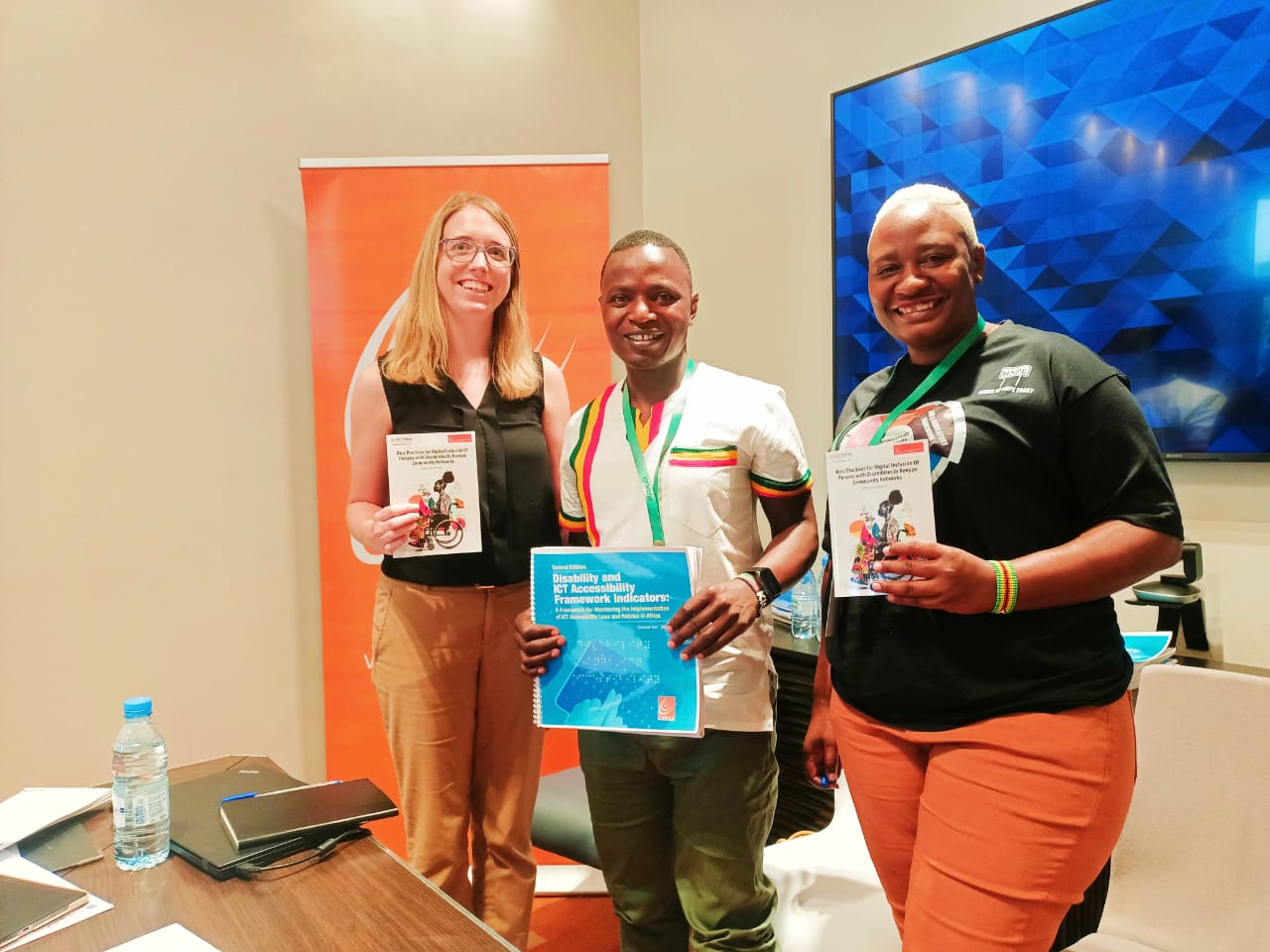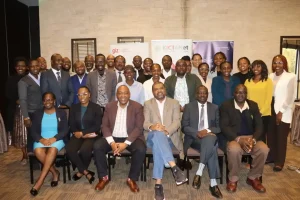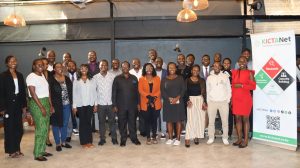The digital age has transformed communication, education, and economic opportunities. However, many people with disabilities (PWDs) in Africa have faced challenges in accessing this digital revolution. To address this issue, CIPESA, CIPE, TOGETHER and Thomson Reuters organized a session titled “Strengthening ICT Accessibility for Persons with Disabilities in Africa” at FIFAfrica 2024 in Dakar, Senegal. The session, attended by PWDs, disability organizations, and other stakeholders, aimed to explore the barriers PWDs face in accessing ICTs, share success stories, and propose strategies for fostering digital inclusion.
Barriers to Digital Inclusion
- Non-Inclusive Education: A significant obstacle is the lack of inclusive and customized education curricula, leading to increased illiteracy among PWDs. This impacts their ability to acquire digital literacy skills and utilize assistive technologies effectively.
- Lack of Customized and Localized Assistive Technology: The availability of assistive technology tailored to specific disability needs is limited. Many devices come with pre-installed languages that may not be widely spoken in African countries, hindering usability and requiring additional resources for training or language customization. Similarly, some devices like imported motorized wheelchairs and smart white canes may be affected by local terrains and climatic conditions and would be ineffective.
- Language Barriers and Assistive Device Language: Language barriers can be a significant challenge, especially when assistive devices have limited language options. This can limit accessibility and require additional training or support.
- Inaccessible Websites and Digital Platforms: Many websites and digital platforms are not created with accessibility in mind, which makes it hard or even impossible for PWDs to use them. For instance, a report by KICTANet on website accessibility showed that many persons with disabilities in Kenya encounter major challenges in accessing government digital services. This prevents them from accessing important public services.
- Weak Legal Frameworks: While there are efforts to create legal frameworks governing digital inclusion and accessibility, implementation gaps persist. The generalization of standards and the adoption of foreign laws without local adaptation can impede effective implementation.
Opportunities and Success Stories
Despite the challenges, there are inspiring examples of progress and initiatives to promote digital inclusion for PWDs in Africa:
- Disability Rights Advocacy: Advocates have played a crucial role in raising awareness, conducting research, and informing policy decisions. Their efforts have helped approach inclusion initiatives in an evidence-based manner. The most recent example is a best practice study report by the KICTANet on Digital Accessibility for PWDs, focusing on Best Practices For Digital Inclusion of People With Disability In Kenyan Community Networks
- Inclusive Education Initiatives: Some learning institutions in countries like Ethiopia have adopted inclusive learning tools to make their programs accessible to PWDs.With this, there is an increased enrollment of learners with disabilities into education programs contributing to increased digital literacy among the group.
- Mobile Money Accessibility: In Ghana, communication telcos in collaboration with PWDs and other stakeholders, have ensured accessibility of their mobile money applications like Momo.
- Disability Hackathons: Events like Disability Hackathons by Inclusive Tech Group have led to the development of assistive technologies and increased awareness of the need for inclusive and accessible digital platforms among developers.
- Model Law Initiatives: Thomson Reuters has developed model laws to provide guidance on creating legal frameworks that are sustainable and inclusive. These model laws serve as a reference for establishing fair and just legal systems.
- Assistive Technology Companies: PWD-owned companies in countries like Uganda are training individuals on assistive technology use and advocating for increased investment in technology development.
Recommendations
To strengthen ICT accessibility for PWDs in Africa, the following strategies can be implemented:
- Inclusive Education: Prioritize inclusive education curricula and training for teachers to ensure PWDs have equal opportunities to acquire digital literacy skills.
- Customized Assistive Technology: Promote the development and availability of affordable, customized assistive technology that meets the diverse needs of PWDs.
- Language Accessibility: Ensure that assistive devices support a variety of African languages and provide training and resources to address language barriers.
- Accessible Digital Platforms: Enforce accessibility standards for websites and digital platforms, and provide incentives for compliance.
- Strong Legal Frameworks: Develop and implement robust legal frameworks that specifically address digital inclusion and accessibility for PWDs, ensuring they are tailored to local needs and enforced effectively.
- Community Engagement: Foster collaboration between PWDs, policymakers, technology developers, and other stakeholders to ensure that their voices are heard and their needs are met.
By addressing these challenges and leveraging the opportunities available, we can create a more inclusive digital landscape where PWDs in Africa can fully participate and benefit from the advantages of technology.
Nicodemus Nyakundi is a Digital Accessibility for PWDs Program Officer at KICTANet. He has a background in IT and advocates for the digital inclusion of persons with disabilities.
![]()





Greetings
I do humbly request if you can visit Makueni County in Kenya and give as a helping hand in the digital platform. Pwd’s are so much marginalized on digital terms.
Hi Mutheu,
Thank you for getting in touch and highlighting the importance of digital inclusion in Makueni. KICTANet is dedicated to advocating for equal access to ICT for all, and we will plan a visit at a suitable time. In the meantime, please take a look at our recent report on including Persons with Disabilities (PWDs) in community networks. The report provides recommendations for ensuring the participation of PWDs in digital spaces.